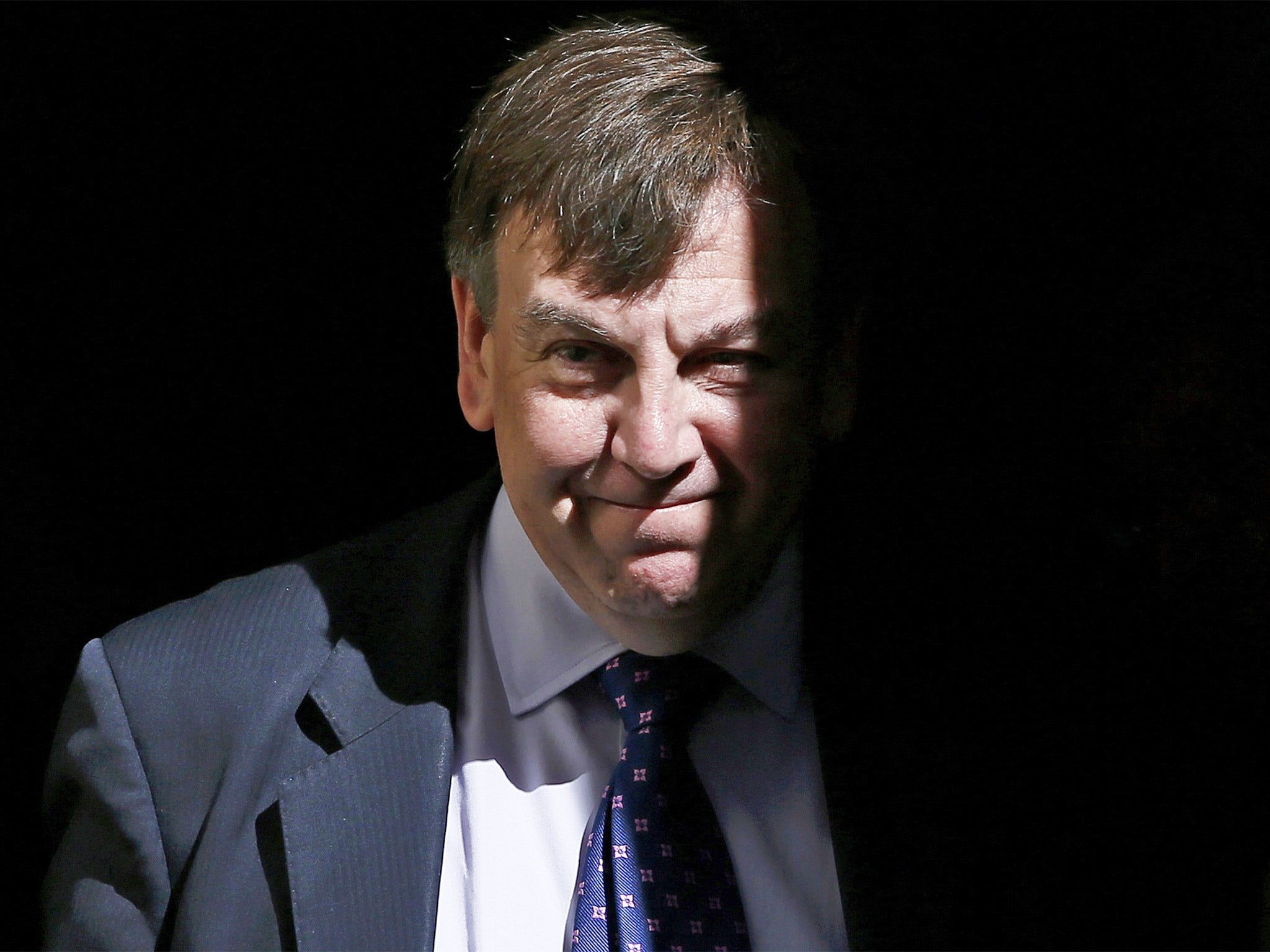It would be sad if the lesson we learned from John Whittingdale was to publish every scandal possible
It was first revealed that Whittingdale had been in a relationship with a woman who turned out to be a professional dominatrix. Now someone else has come forward with a kiss-and-tell


It has been quite a week for John Whittingdale. First came the revelation online - then via the BBC’s Newsnight - that the minister for culture, media and sport had had a relationship with a woman who turned out to be a professional dominatrix.
Oddly, this was a rare story about a politician’s sex life where the sex was really just a sideshow. The more controversial aspect was the suggestion that a number of mainstream newspapers, including The Independent, had known about the relationship and decided not to reveal the details. It was alleged that some of the relevant titles – notably the People, the Mail on Sunday and the Sun – deliberately spiked the story in order that they could hold it over Whittingdale’s head, keeping him ‘on side’. He is, after all, the man responsible for making decisions about the future of press regulation.

Insofar as The Independent is concerned, the decision last year not to proceed was made on reasonable editorial grounds, as Amol Rajan, then editor who is now on paternity leave, has made clear. The main plank of our story – that other newspapers had allegedly engaged in a cover-up of the relationship for their own, underhand motives – was an intriguing theory but it was ultimately unproved.
Maybe we’ll live to learn more. But at the time, and still now, it seemed to me at least plausible that editors had, in fact, made an appropriate public interest calculation and had decided to back off for quite straightforward reasons. Sure enough, the fact of a single man, MP or not, having a relationship with a woman who happened to be a sex worker was not, in my view, sufficiently in the public interest to override privacy considerations.
Those arguing in favour of the conspiracy angle pointed out that that tabloid newspapers don’t normally hesitate over such stories. But how do you prove a negative? The truth is, there are countless stories which are investigated by reporters and often come close to publication – but which are ultimately canned, perhaps because a lawyer raises a red flag or because the ethics don’t quite add up or because an editor decides it isn’t the story they thought it was.
Comparisons were made with other political ‘kiss and tells’ to try to add weight to the collusion claims. The tabloids, it was noted, hadn’t worried about exposing Lord Sewell’s alleged drug-taking with prostitutes; nor about conducting an undercover investigation into the behaviour of Brooks Newmark. In fact, though, those cases simply emphasise the fact that editors have to judge each case on its own merits. To contend that an editor would regard every MP as fair game just because they have revealed the sexual proclivities of a few is overly simplistic.
Now, however, there is a new story to set the Whittingdale-domintrix tale against: the Whittingdale-‘soft porn actress’ affair. The Mail on Sunday revealed at the weekend claims by a second woman who dated the secretary of state – she said he was indiscreet with ministerial documents and had sent her a picture of Tory bigwigs at a Chequers gathering. Whittingdale for his part emphatically denies that she had access to government papers.
The question arises then, whether the revelations concerning John Whittingdale’s relationship with girlfriend number two, Stephanie Hudson, have a public interest justification which didn’t exist vis-à-vis his association with ‘Mistress Kate’, the dominatrix. He is a single man in both scenarios and there is no evidence of any serious impropriety or of the relationship with Ms Hudson causing some sort of security risk. Arguably the major difference between the two stories is that Ms Hudson decided to speak about her relationship; ‘Mistress Kate’ may have kissed but did not tell. That is a not insignificant difference, of course, although whether Ms Hudson’s right to tell her story trumps Mr Whittingdale’s right to privacy is at least debateable.
In any event, one can’t help but wonder whether this weekend’s revelations were made more likely by last week’s claims of a newspaper cover-up. To put it another way, if the justification for the BBC to reveal the first story was that newspapers were deliberately colluding to keep the matter away from the public, the Mail on Sunday’s decision to publish the second might be seen to militate against the claims of conspiracy.
Public figures have for many years fought to carve out their private lives from the prying eyes of the press. The law and the strengthening of press self-regulation have helped them to achieve a more appropriate balance than might have been the case 30 years ago. The media should hold them to account, of course, and it would be wrong to conclude that are never instances when an intrusion isn’t justified.
Still, it would be unfortunate if the strange case of John Whittingdale has the outcome of creating a new justification for invasive stories: that only by publishing everything they know can journalists prove they aren’t holding back for ulterior purposes.
Will Gore is Deputy Managing Editor of The Independent & The Evening Standard
Join our commenting forum
Join thought-provoking conversations, follow other Independent readers and see their replies
Comments
Bookmark popover
Removed from bookmarks